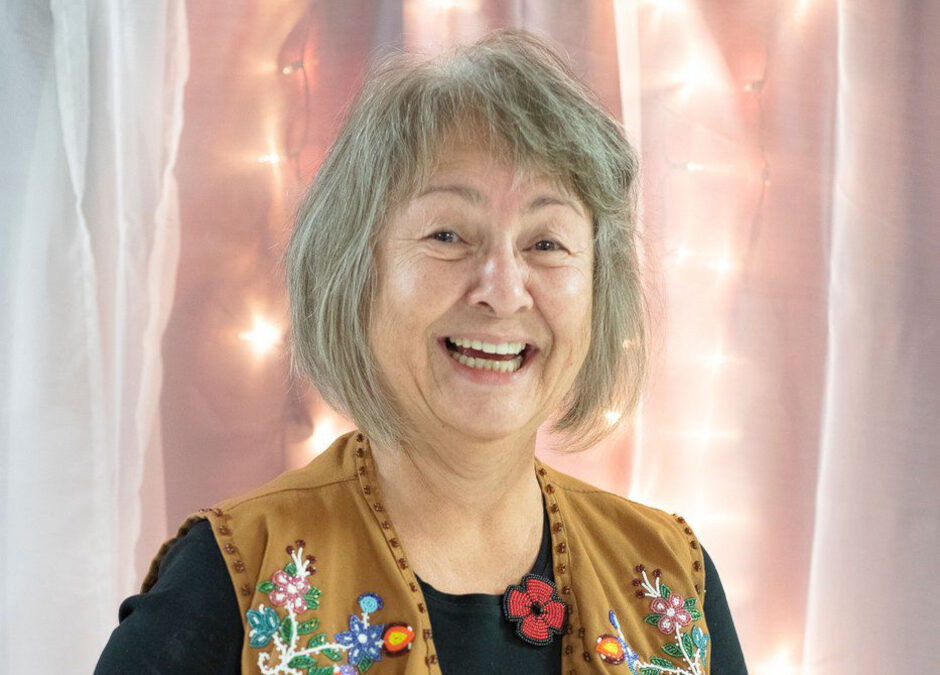By Julia Peterson, Local Journalism Initiative Reporter
The Piwapan Wellness Centre is a busy, bustling place.
With dozens of programs and services spread across three buildings in La Ronge, staff and clients are working to break cycles of harm and violence in northern Saskatchewan communities.
Earlier this month, Piwapan’s women’s shelter marked its 30th anniversary, celebrating the date with a “celebration of women gala” at the town’s community centre.
Anita Jackson is one of the organizers who was there at the start. In the midst of that milestone moment, she took time to reflect on how far the shelter has come in the past three decades — and how much work is still left to do.
Before the shelter had a permanent location, Jackson said, they used to do “bake sales, fundraising, whatever and however we could” to raise money and rent a house so that women and children fleeing intimate partner violence could have a safe place to go.
It was hard work, and Jackson says she and her fellow organizers faced a near-constant uphill battle.
“Whenever the neighbours found out that we were providing safe shelter for a woman and her children, they would go to town council and create such a ruckus for us that we would eventually be evicted, and have to find some other place for shelter,” she recalled. “We operated like that in our community for a good 10 years.”
Finally, with funding from the federal government, the shelter opened its permanent location in 1992.
For Jackson, those first few years of the new shelter were a “really frightening” time. She and the other organizers were often met with hostility for talking about violence against women, even as more women were reaching out to the shelter in need of safety and services.
“We were damned if we did and damned if we didn’t,” Jackson said. “So we just said — you know what? If we don’t do it for ourselves, the violence isn’t going to change. It won’t change for our daughter, and it won’t change for our sons, and the violence just won’t stop.
“So we did it.”
The shelter itself — a large building, with a mix of offices, bedrooms and common areas — can host up to eight families at a time. It’s often full. Last year, local women found safety here 114 times, and there were more than 450 calls to the shelter’s crisis line.
Karen Sanderson, Piwapan’s executive director, says a woman who comes to the shelter to escape intimate partner violence will never be turned away, even if it means finding room for her in a hotel or in a shelter down south.
But as she looks towards the next 30 years of the women’s shelter, Sanderson says the work is expanding to focus on violence prevention and healing the whole family, as well as providing safe shelter.
“We’re thinking about prevention and intervention, and trying to make those changes within our little area of the north,” Sanderson said. “Hopefully, we want to have an impact where there’s not so much domestic violence, and there’s more healing.
“And you can’t only do preventative measures with shelters. You have to try and do that healing portion for the whole family, so you can break the cycle of violence from within.”
In recent years, Piwapan’s programming has expanded to include youth groups, a kokum’s club, sexual wellness education and outreach programs. There are also more services for the whole family, including for men.
“Aside from the shelter, where we do have a mandate for women and children, our outreach programs and relationship wellness program are open to men,” Sanderson said. “We are not just a women’s centre anymore — men can come here for help, too.
“Men are victims of violence, too, and men need to know that they have some supports out here.”
So, 30 years since the shelter opened its doors, the work continues. A lot has changed, Jackson says. The shelter is more accepted now, and it has become easier to talk about the root causes that make it so necessary. But the fact that a women’s shelter is still necessary in La Ronge leaves her with mixed emotions.
“We had hoped that, with the work we did, we’d be able to turn our community around,” she said. “It makes me really happy to be able to speak freely about these things — because we certainly couldn’t talk like this 30 years ago.
“But at the same time, the issues in the north with violence against women and children, and violence against men, have not changed a whole lot. We still have more need than what we can provide.”
(Top Photo. Anita Taylor receives an award at the Celebration of Women gala in La Ronge on November 10, 2022. Megan Heyhurst photography.)
